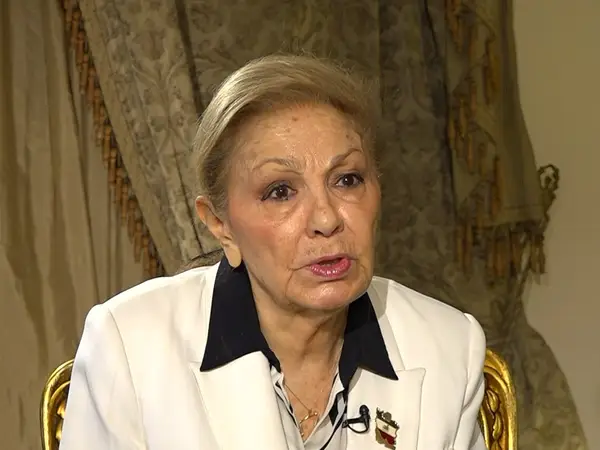Iran’s exiled Queen has applauded Iranian women seeking justice for loved ones killed in anti-government protests and those who are fighting compulsory hijab.
“My dear sisters and children, I'm aware of the hardships you are going through and I'm proud of your courage and power in seeking freedom,” the exiled Queen Farah Pahlavi said in a video message obtained by Iran International referring to the escalation of government pressure on ‘Mothers for Justice’ and violence against anti-hijab activists and protesters.
The group of activist mothers whose children were killed by the government during anti-government protests in recent years has come to be known as ‘Mothers for Justice’. They have tried to keep the memory of their loved ones alive while relentlessly calling for justice for them despite intimidation, harassment, arrests and even prison. ‘Mothers for Justice’ have also been supportive of women's rights campaigns and the anti-hijab movement.
“You and your families are in my thoughts. I hope that Iran will be freed, in the same way that you want it to be freed, and particularly that you are freed [from oppression] yourselves,” the former Queen of Iran said in her message.
The movement against compulsory hijab has picked up pace in the past few weeks following the harsh crackdown on ‘bad-hijab women’ by the ‘Morality Police’ and extra measures ordered by authorities, including denying service to women who do not fully comply with hijab rules at government offices, banks, and public transportation.
On July 12, following a call by women’s rights activists for civil disobedience with the hashtag of ‘No2Hijab’ social media exploded with dozens of videos and photos of women unveiling in public.
In another statement released on Sunday, the exiled Queen condemned the widespread arrests of civil and human rights activists in Iran, particularly the anti-hijab activists. Denouncing the violent behavior of the morality police’s hijab enforcement patrols (Gasht-e Ershad) and the arrest of anti-hijab activists and protesters, she said in her statement that the civil struggle of Iranian women and men against all forms of coercion and discrimination is a “source of pride and honor.”
Farah Pahlavi, who married Mohammad Reza Shah at the age of 21 in 1959, is 83 years old and lives in Paris. She has come to be seen by many Iranians as a respected elder who contributed to the realization of women’s rights during the secular monarchy.
“Today, Iran has stood up and despite [government] killings in streets, repression, prisons, torture and executions, Iranian freedom fighters, Iran's unique women, alongside men, have not hesitated in conveying their outrage at the regime's leaders to the world,” she said Wednesday in another message on the 42nd death anniversary of her husband, King Mohammad Reza Shah Pahlavi, who was ousted by the Islamic Revolution of 1979.
In recent years as economic crisis and heavy-handed policies by the Islamic Republic have worsened, many Iranians have come to praise the Pahlavi dynasty for modernizing the country in the 20th century and have chanted slogans praising the Pahlavi monarchs during anti-government protests.
The former crown prince, Reza Pahlavi, has on several occasions said that he is not seeking to return to power but in his messages to the nation over the waves of protests in the country in the past few years he has repeatedly called for a coordinated front to organize anti-government activities.
